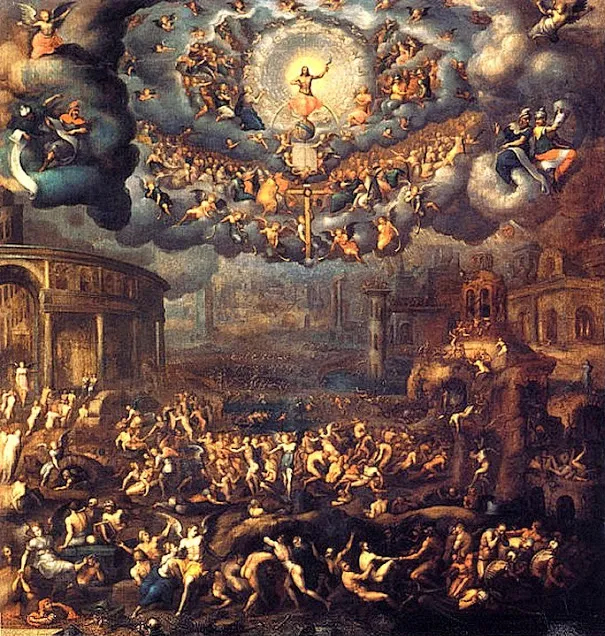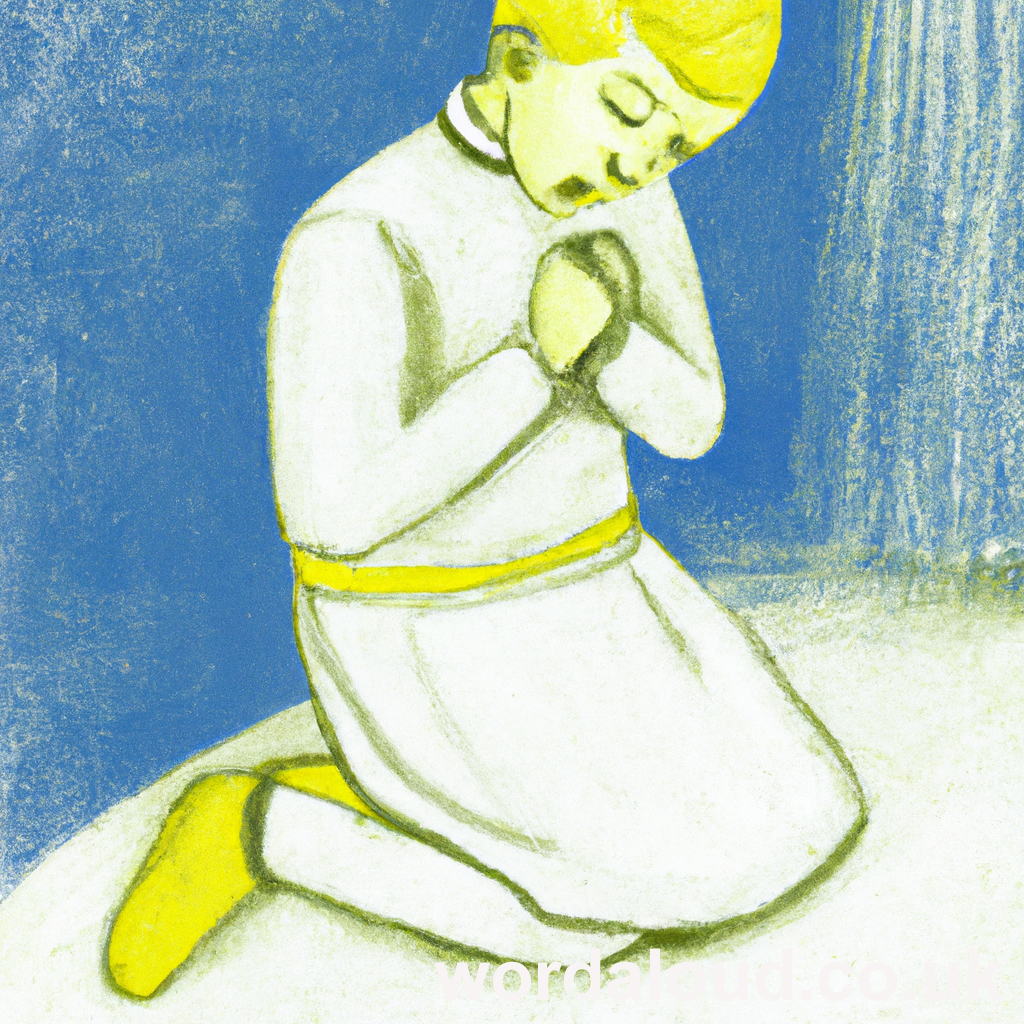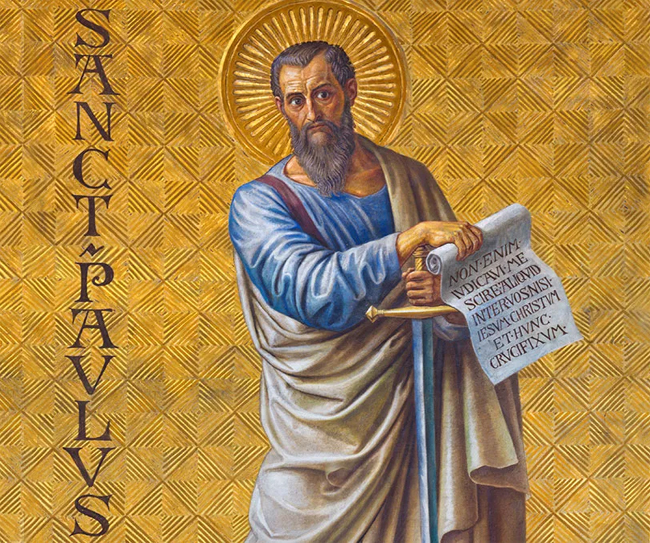Christian Art | Parousia | Apocalypse | The Second Coming | King James Audio Bible
Luke 17: 26-37 – Week 32 Ordinary Time, Friday (King James Audio Bible KJV, Spoken Word)
26 And as it was in the days of Noe, so shall it be also in the days of the Son of man.
27 They did eat, they drank, they married wives, they were given in marriage, until the day that Noe entered into the ark, and the flood came, and destroyed them all.
28 Likewise also as it was in the days of Lot; they did eat, they drank, they bought, they sold, they planted, they builded;
29 But the same day that Lot went out of Sodom it rained fire and brimstone from heaven, and destroyed them all.
30 Even thus shall it be in the day when the Son of man is revealed.
31 In that day, he which shall be upon the housetop, and his stuff in the house, let him not come down to take it away: and he that is in the field, let him likewise not return back.
32 Remember Lot’s wife.
33 Whosoever shall seek to save his life shall lose it; and whosoever shall lose his life shall preserve it.
34 I tell you, in that night there shall be two men in one bed; the one shall be taken, and the other shall be left.
35 Two women shall be grinding together; the one shall be taken, and the other left.
36 Two men shall be in the field; the one shall be taken, and the other left.
37 And they answered and said unto him, Where, Lord? And he said unto them, Wheresoever the body is, thither will the eagles be gathered together.
Jesus continues to speak to his listeners about the apocalyptic coming of the Son of Man. Using a highly elevated, figurative language, laden with symbol and metaphor, Jesus describes the second coming, or Parousia, which marks the end of this period of history and the inauguration of the new age, the days of the Son of man; it is a scene of sudden, violent destruction and transformation, and a scene of judgement.
Jesus tells us that his coming will be unexpected and catch many unawares. He speaks of how everyday life continued right up to the moment of crisis in the time of Noah and of Lot, the normality of the daily routine suddenly giving way to destruction, when people are judged.
There is a stark warning that some of those who have lived in close proximity, sharing their lives with each other, will be taken and others left. We may recall the parable of the wise and foolish virgins. There the key issue is watchfulness, preparedness; here the choice may seem frighteningly arbitrary. We are perhaps to assume that there is an inward quality to some that others have not admitted. The verse, ‘Whosoever shall seek to save his life shall lose it; and whosoever shall lose his life shall preserve it,’ might suggest that those who value the things of this life above all lose eternal life, while those who are detached from worldly goods have a life in heaven.
Jesus, clearly, did not intend these apocalyptic saying to foretell the imminent physical destruction of the world. He may be speaking of the destruction of Jerusalem in the year AD 70, and the scene of unspeakable carnage there, which ripped the heart from Jewish society, religion and culture. It is Christian belief that there will be an end, a final coming of the Son of man. This to many of us may be to think in terms of unimaginable time-frames – and indeed a plurality of categories, as time pertains to God and to Man.
More immediately, we understand through Christ’s eschatological discourses the imminence of the coming of Christ in our lives right now, and the complete transformation we experience when we open our hearts, our minds, our souls, and cry, Come, Lord Jesus! Here there is urgency, our own eager calling to Jesus being a response to Jesus’ fervent desire to establish his Kingdom within us. Here also the fear of destruction is answered.
Eternal Father, loving God,
Who made us from the dust of earth,
Transform us by the Spirit’s grace,
Give value to our little worth.
Prepare us for that day of days
When Christ from heaven will come with might
To call us out of dust again,
Our bodies glorified in light.
O Godhead, here untouched, unseen,
All things created bear your trace;
The seed of glory sown in man
Will flower when we see your face.
![]()









